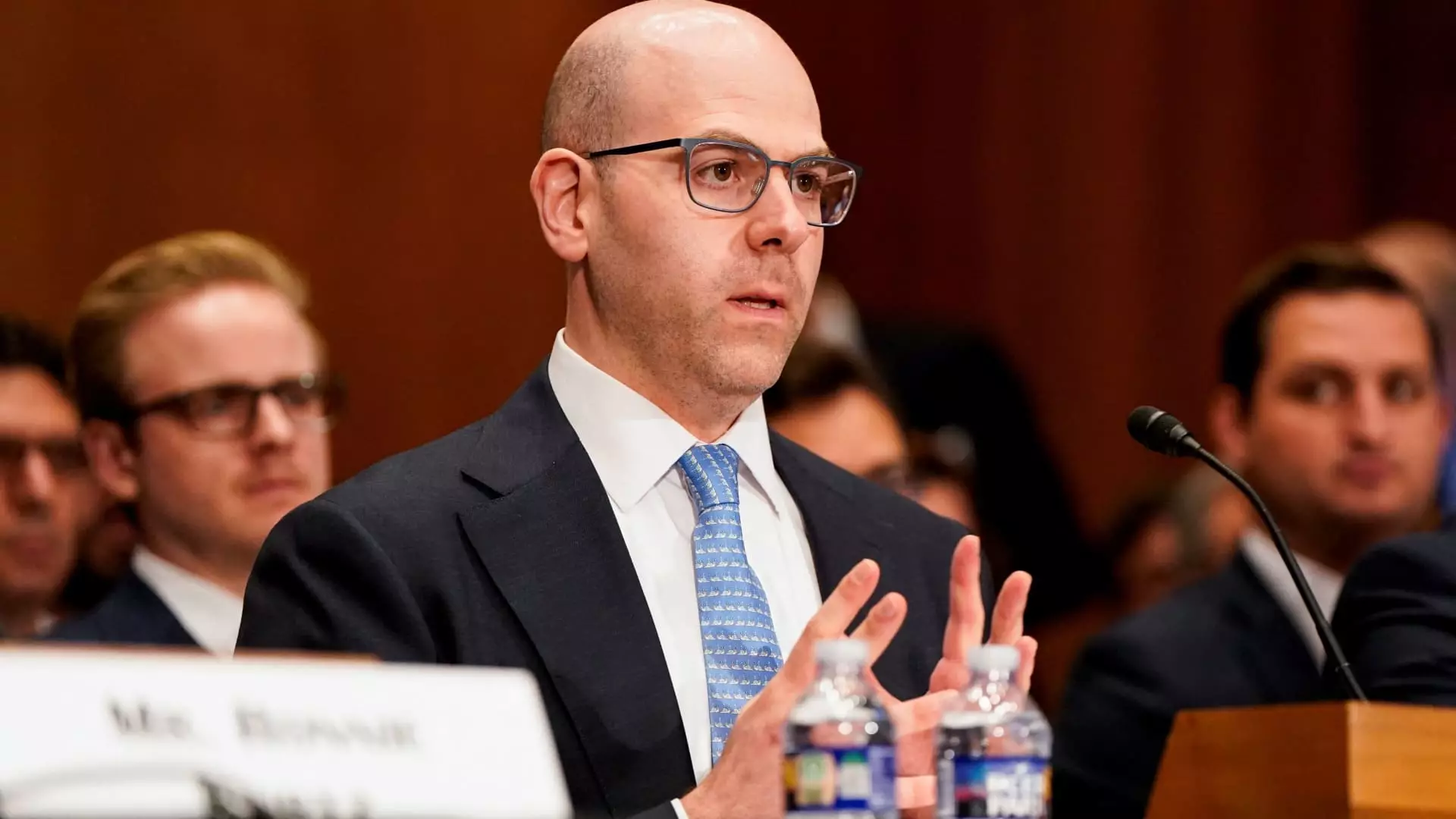The recent revelations about Federal Reserve Governor Stephen Miran’s decision-making process highlight a troubling trend that threatens the very legitimacy of the Fed’s independence. Miran’s insistence that he made his vote without external pressure, despite the clear involvement of political figures, underscores the fragile veneer of neutrality that the central bank tries to project. In reality, the environment within which the Fed operates appears increasingly susceptible to political influence, raising vital concerns about accountability and the true drivers behind monetary policy decisions.
By emphasizing that Trump’s interactions with Miran were limited to a congratulatory call and that no direct pressure was exerted, the narrative attempts to maintain the illusion of impartiality. However, this narrative conveniently omits how the macro-political atmosphere, expectations of presidential influence, and the broader political climate shape the leeway Fed officials feel in their decision-making. The mere perception—or reality—of political meddling erodes the trust necessary for a truly independent central bank, which is fundamental for economic stability and credible policymaking.
Politicization of Monetary Policy: A Hazardous Trend
The Trump administration’s vocal and invasive approach to Fed policy marks a dangerous shift from traditional respect for the institution’s autonomy. Unlike past administrations that engaged with the Fed privately and discreetly, Trump’s public criticisms and overt meddling have cast a shadow over the central bank’s ability to operate without fear of retaliation. Calling Chair Jerome Powell “Too Late” and openly lobbying for specific policy outcomes not only undermine the credibility of the Fed but also threaten to politicize economic decision-making in perilous ways.
This trend is more than just a political feud; it is a fundamental challenge to the central bank’s role as an impartial arbiter tasked with safeguarding economic stability. The Fed’s delicate balancing act—considering employment, inflation, and growth—becomes compromised when political generals threaten to pick strategic winners or punishing dissenters. Miran’s case, who openly defends his independence and distances himself from political pressure, is just a small but significant flashpoint in a larger battle over the institution’s future.
The Consequences of Subverting Institutional Integrity
Allowing politics to infiltrate monetary policy decisions risks more than just short-term market jitters; it jeopardizes long-term economic health. When officials like Miran suggest they are making independent choices, it must be questioned whether these assertions are genuine or simply a shield against political fallout. The potential consequences include increased market volatility, loss of investor confidence, and a diminished ability of the Fed to respond effectively during economic crises.
Moreover, the appointment and retention of officials like Miran, who are perceived to be politically motivated or influenced, threaten to skew the central bank’s policymaking processes. An orderly, predictable monetary policy relies heavily on the perception that decisions are based on data and expertise, not political preferences. If this trust erodes, so does the foundation of credible monetary governance, ultimately harming the very citizens the Fed is supposed to serve.
A Call for Genuine Independence and Transparency
Maintaining the Fed’s independence demands more than just platitudes about non-interference. It requires a transparent process that actively resists political influence and fosters accountability through public explanations and robust institutional safeguards. While Miran’s upcoming speech before the Economic Club of New York offers an opportunity for him to articulate his stance clearly, it also symbolizes the larger necessity for the Fed to reaffirm its commitment to unbiased decision-making.
The central bank must evolve beyond mere lip service to independence. Its members should be held accountable to a higher standard of transparency and insulated from undue political pressures. Only by doing so can the Fed preserve the core principle that monetary policy should be driven by economic need, not partisan interest—a principle fundamental to economic stability, social justice, and the public trust.
The ongoing political attacks and internal debates about the Fed’s role reveal a broader societal tension: the desire for a monetary authority that is genuinely autonomous versus the impulse for political control. Balancing these interests is the central challenge for the Fed today, and how it navigates this treacherous terrain will determine its effectiveness—and its moral authority—for generations to come.

